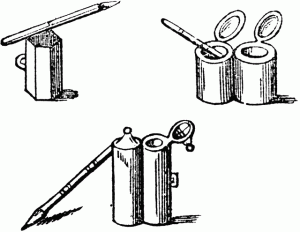Critical Reading and Writing
 The aim of English 110 is to help you write in interesting ways about texts and ideas that matter to you. Critics are people whose own creativity is bound up with the texts they read and watch and listen to. To write as a critic is to respond to the work of others, to place your thoughts in relation to theirs.
The aim of English 110 is to help you write in interesting ways about texts and ideas that matter to you. Critics are people whose own creativity is bound up with the texts they read and watch and listen to. To write as a critic is to respond to the work of others, to place your thoughts in relation to theirs.
English 110 is set up as an academic seminar—as a course in which we all read a set of books and articles together and then share what we think and write about them with each other. In a seminar everyone brings their work to the table. You can thus expect to read much of the writing your classmates are doing and to have them read your work too. This sort of give-and-take is a key aspect of working as a critic, of responding to the ideas of others. You might think of this course, then, as a kind of conversation—one that takes place in both speech and writing, and that includes both our voices and those of the writers we read.
Exploring Language
While all sections of E110 share the same course goals, different teachers work toward those goals in their own particular ways, centering their sections on readings and questions that they find important and engaging. As a writer and a scholar I’m interested in how language works and shapes our perception: not just it relates to how we communicate, but also in how it influences how we interpret, think, and act.  So I’ve decided to center this course on a pioneering attempt to understand language and its connection to understanding: George Lakoff and Mark Johnson’s Metaphors We Live By.
So I’ve decided to center this course on a pioneering attempt to understand language and its connection to understanding: George Lakoff and Mark Johnson’s Metaphors We Live By.
George Lakoff is a linguist who has written several books about metaphor’s relationship to art and politics. Mark Johnson is a philosopher interested in how the body affects our reasoning and imagination. At the time when they wrote Metaphors We Live By in 1980, linguistics and philosophy did not typically cross paths. Metaphors We Live By was made possible in part by the connections Lakoff and Johnson made between their distinct fields and by working collaboratively to bring their ideas to fruition in writing. In this sense it is appropriate that this course will also be an experiment in mutually challenging each other to think and write in imaginatively rational ways.
My goal is to offer you a sense of the kinds of writing that you’ll be asked to do as a student at this university, of the sorts of things you’ll need to know how to do with the texts you’re given to read and respond to. Metaphors We Live By is a complex and sophisticated book. If you learn how to make use of its ideas and phrasings in your own work, you’ll be ready to take on almost any other text you’re asked to write about. My hope is that, by the end of this course, you’ll not only feel more confident in writing about texts and ideas, but more interested in doing so.